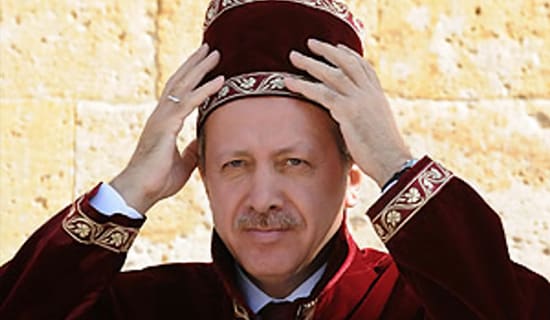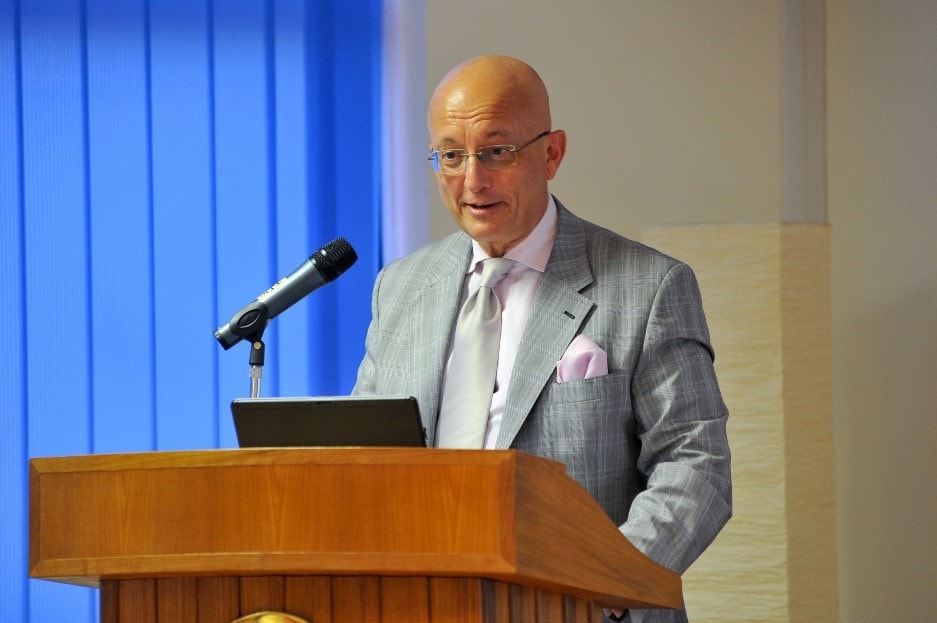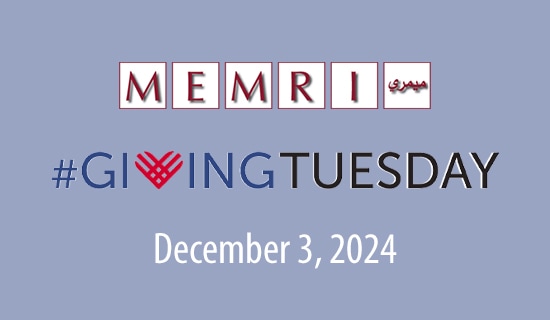In a recent article, prominent Pakistani journalist Amir Mir warned that the killing of Taliban commander Baitullah Mehsud was "unlikely to give Pakistan a reprieve" in its fight against the Islamic militants in Pakistan's tribal region.
Baitullah Mehsud, the Emir of Tehreek-e-Taliban Pakistan (TTP, or the Movement of Pakistani Taliban), was reportedly killed in a U.S. drone attack on August 5, 2009. He had been responsible for uniting all militants in Pakistan, leading to the formation of TTP in December 2007.
Amir Mir's article lists the top 10 militant commanders who could pose a threat to Pakistan in the near future, including British citizen Rashid Rauf, whose reported death in a U.S. missile remains unconfirmed by Pakistani and British security officials.
The article also mentions several militant organizations: Lashkar-e-Islam (LeI), a non-Taliban group active mainly in the tribal district of Khyber Agency; Tehreek-e-Nifaz-e-Shariat-e-Mohammadi (TNSM, or Movement for the Enforcement of Prophet Muhammad's Shari'a), led by Maulana Sufi Muhammad and his son-in-law Maulana Fazlullah who leads the Taliban in Swat district; Lashkar-e-Jhangvi, an Al-Qaeda affiliated organization based in the town of Jhang; Harkat ul-Jihad al-Islami (HuJI), operating in India and Bangladesh; Jaish-e-Muhammad, an anti-India militant organization affiliated with Al-Qaeda; and others.
Following are some excerpts from the article: [1]
"Pakistan's Top 10 Most Wanted Terrorists Belong to Six Militant And Sectarian [Sunni/Shi'ite] Organizations Linked to Al-Qaeda and the Taliban"
"According to well-placed Interior Ministry sources in Islamabad, Pakistan's top 10 most wanted terrorists belong to six militant and sectarian [Sunni/Shi'ite] organizations linked to Al-Qaeda and the Taliban. Four of the 10 are affiliated with the TTP; two belong to the LeJ, while one each is associated with the TNSM, the JeM, the HuJI and the LeI. They include Maulana Fazlullah, the fugitive Emir of the Swat chapter of the Tehreek-e-Nifaz-e-Shariat-e-Mohammadi (TNSM); Hakimullah Mehsud; Qari Hussain Mehsud; Maulvi Faqeer Mohammad and Waliur Rehman of the Tehreek-e-Taliban Pakistan (TTP); Matiur Rehman and Qari Zafar of the Lashkar-e-Jhangvi (LeJ); Maulana Ilyas Kashmiri of the Harkat ul-Jihad al-Islami (HuJI); Rashid Rauf of the Jaish-e-Mohammad (JeM); and Mangal Bagh of the Lashkar-e-Islam (LeI)."
No. 1 - Maulana Fazlullah
"With Baitullah Mehsud already down, Maulana Fazlullah has become the No. 1 most wanted terrorist. He is the son-in-law of Maulana Sufi Mohammed, the founder of TNSM. Born March 1, 1975, Fazlullah is widely known as Mullah Radio for using illegal FM channels to broadcast vituperative speeches, threatening people with dire consequences should they not adhere to shari'a and instigating the residents of Swat into taking part in jihad. He has been missing since April 2009, since the Pakistan Army launched a massive operation to dismantle his jihadi infrastructure following the collapse of a shari'a-for-peace agreement between Maulana Sufi Mohammed and the government. Though the Army has reclaimed Swat district, Maulana Fazlullah remains at large. He carries a reward of Rs 5 million on his head."
No. 2 - Hakimullah Mehsud
"A close confidant of Baitullah Mehsud, Hakimullah Mehsud is the new Emir of the TTP. Born in 1980, he used to command TTP fighters in Orakzai, Khyber and Kurram tribal agencies of the Federally Administered Tribal Areas (FATAs). Hakimullah, also known as Zulfiqar Mehsud alias Gudu, has been leading operations against NATO's supply lines in Khyber and Peshawar. His forces have been behind raids that have led to the destruction of more than 600 NATO vehicles and shipping containers. He had taken credit for a series of suicide attacks and complex assaults in Lahore and Peshawar, including the March 2009 attack on the Manawan Police Training Academy in Lahore. Pakistani Interior Minister Rehman Malik claimed following the death of Baitullah that Hakimullah too had died in a gun battle. But he is still alive."
No. 3 Qari Hussain Mehsud
"Another close aide of Baitullah, Qari Hussain Mehsud ranks No. 3. He is a key commander of the TTP in South Waziristan, and known as the Ustad-e-Fidayeen (the trainer of suicide bombers). He runs camps that train children to become suicide bombers. Children are indoctrinated to wage jihad in Pakistan and Afghanistan, as shown in a video taken at one of his camps... which was released by him himself. The two major suicide hits claimed on the video were the March 11, 2008 suicide attack on the Federal Investigating Agency (FIA) building in Lahore and the November 24, 2007 twin suicide attacks in Rawalpindi, in front of the Inter-Services Intelligence (ISI) headquarters. The Pakistani military demolished Hussain's suicide nursery in January 2008 and claimed that he too had been killed. But he mocked the military barely a week later during a press conference, saying, 'I am alive, don't you see me?"'
No. 4 - Ilyas Kashmiri
"No. 4 in the most wanted list, Ilyas Kashmiri, the chief of the Azad Kashmir [free Kashmir or Pakistani Kashmir] chapter of Al-Qaeda-linked jihadist organization Harkat ul-Jihad al-Islami (HuJI), is a veteran of the Kashmir jihad who spent several years in an Indian jail. He was arrested after the December 2003 twin suicide attacks on General Pervez Musharraf's presidential cavalcade in Rawalpindi, but released a few weeks later due to lack of evidence. He later shifted his base to the Waziristan region and joined hands with Baitullah Mehsud. He later established a training camp in the Razmak area of Waziristan and shifted most of his militants from his Kotli training camp in Pakistani Kashmir. He has been named in a charge-sheet filed by the Islamabad police for masterminding the November 2008 murder of Major General (retired) Amir Faisal Alvi, the former general officer commanding (GOC) of the elite Special Services Group (SSG)."
No. 5 - Rashid Rauf
"No. 5 on the most wanted list, Rashid Rauf is an alleged Al-Qaeda linked British national of Pakistani origin who is wanted by Pakistan and Britain for being a central figure in an August 2006 plot to blow up some U.S.-bound trans-Atlantic airplanes. A close relative of Jaish-e-Mohammad chief Maulana Masood Azhar, Rashid has been accused of forming multiple cells, each comprising 12 terrorists, which had been dispatched in 2008 from Pakistani tribal areas to conduct a series of bomb attacks in the major cities of several European countries. Rashid was reportedly killed on November 22, 2008 after a missile fired from a CIA predator drone destroyed a mud bungalow in Alikhel village of North Waziristan. But it later transpired that he is alive and operating from the Waziristan region."
No. 6 - Mangal Bagh Afridi
"The No. 6 most wanted terrorist is Mangal Bagh Afridi, who is the founder of the Lashkar-e-Islam, an Islamic militant group operating in Khyber Agency which claims to be a reformist organization trying to promote virtue and prevent vice. Born in 1973 in the Bara Tehsil area of Khyber Agency, Mangal used to be a bus conductor, and now preaches extremism on his privately run FM radio stations. If he is to be believed, his Lashkar-e-Islam has 120,000 armed men who control most parts of Khyber Agency. Already declared a proclaimed offender, he left a trail of bloodshed, pillage and mayhem when his men attacked unarmed villagers in Sheikhan, near Peshawar, in early 2009 and killed dozens."
No. 7 - Matiur Rehman
"Born in 1977, Matiur Rehman, aka Samad Sial, chief operational commander of the Lashkar-e-Jhangvi, ranks No. 7. He is a Pakistani national, but identified as Al-Qaeda's planning director, wanted by both the FBI and FIA of Pakistan. Known as an extremely fine bomb-maker, he comes from Bahawalpur district of Pakistan's Punjab province and carries a bounty of 10 million Pakistani Rupees, as announced by the Pakistan government. He was linked with the August 2006 transatlantic plot to destroy U.S.-bound British aircraft. Suspected for his involvement in the September 2008 Marriot Hotel suicide bombing in Islamabad, Matiur Rehman is described as extremely dangerous because of his role as the liaison between Al-Qaeda and the Pakistani jihadi community."
No. 8 - Maulvi Faqir Mohammed
"Born in 1970 in the Bajaur Agency, a tribal district along the Afghan border, Maulvi Faqir Mohammed is a member of the Mohmand tribe and the deputy commander of the TTP. Formerly affiliated with the TNSM led by Maulana Sufi Mohammad, he is wanted due to contacts with the Taliban and Al-Qaeda militants. Faqeer has publicly stated that he has close ties to Osama bin Laden deputy Dr. Ayman Zawahiri. After Baitullah's death, he first announced assuming temporary command of the TTP, but later declared that Hakimullah Mehsud has been selected as the leader of TTP. He is accused of orchestrating the November 8, 2006 suicide attack on an Army training center at Dargai in NWFP, which killed 45 recruits of the Punjab Regiment Centre."
No. 9 - Waliur Rehman
"Waliur Rehman, the commander of the South Waziristan chapter of the TTP, has emerged as a key jihadist figure after the death of Baitullah. Born in 1974, Waliur is a cleric who studied at a religious seminary in the town of Faisalabad - the Jamia Islamia Imdadia - before teaching for seven years at a madrassa in South Waziristan. He joined the Taliban movement in 2004 to become one of Baitullah's trusted aides, who used to look after the financial matters of the TTP. At one stage in his life, Waliur Rehman was associated with Maulana Fazlur Rehman's Jamiat Ulema-e-Islam (JUI), a ruling party in Pakistan, and pursued peaceful politics. Waliur Rehman was a main contender for Baitullah's job as the TTP head, and his selection as the TTP head for South Waziristan has made him the pivotal figure in the organization."
No. 10 - Qari Mohammad Zafar
"Qari Mohammad Zafar is largely believed to be the acting Emir of the Lashkar-e-Jhangvi and runs a suicide bombing squad in Pakistan. Presently operating from South Waziristan, Zafar was alleged to be the mastermind of the September 2008 Marriott Hotel bombing. Hailing from Karachi, he is reported to have become one of the members of Al-Qaeda's hard-line inner circle in Pakistan and enjoying the protection of the TTP. In 2007, Zafar escaped from the custody of Pakistani security services in Lahore. He is also wanted for questioning in connection with the March 2, 2006 car bomb attack on the U.S. Consulate in Karachi."
Endnote:
[1] The News (Pakistan), September 1, 2009. The article has been lightly edited for clarity.





